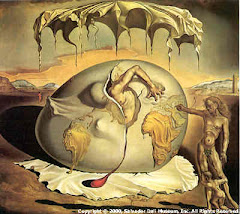If this narrative resonates at all with you, then the obvious question that presents itself is: “What am I to do?” Perhaps as individuals we accept some responsibility for addressing these twin social and environmental crises of the twenty-first century. Maybe we ride our bikes to work rather drive our cars; maybe we decide to become vegetarians, plant gardens in our back yards, or buy only locally grown organic foods and shop for fair-traded or fairly made goods. Maybe we donate money to various charities and nongovernmental organizations that work in the fields of human rights, humanitarian relief, development, or to environmental organizations working to prevent the destruction of the rainforest, protect endangered species, preserve the wilderness, and so forth. We may do these things partly out of a sense of guilt (because we have so much while so many others have so little), or perhaps out of a sense of gratitude (also because we have so much while so many others have so little).
But some of us do these kinds of things because we believe that it is our social responsibility to do so. Those of us who think in this way choose to “take responsibility” for solving some of these big problems, for repairing the world, even though we do so with the knowledge that the little bit we can do in our own lives, with our own homes and families, and in the institutions and organizations in which we work, is really insignificant and will hardly make a dent on the enormous challenges human civilization is facing. Yet we do these things anyway, not because (in most cases) the law tells us that we must do them, but because our reason and our consciences tell us that we ought to.
Those of us who work in these kinds of organizations fire up our computers every morning and hunt and gather information that we think might be useful in finding solutions to these problems, and put those gems we have gathered into articles, reports, and books, hoping that someone will read them who can make a difference. We fly in jet planes around the planet to meetings and conferences trading memes with other people who share our sense of social responsibility in the belief that if we gather enough committed, like-minded people, we can create a broad-based global social movement, and through it the major institutions of society, government and business, may reach a tipping point from which real change can begin.
But in the back of our minds, perhaps, is the doubt that any of this activity is really making a difference. We may have good intentions, and go to bed each night with a clear conscience that assures us that we are doing our part to address these global problems, but we worry that all that we are doing may turn out to be too little too late.
Many thoughtful people have a sense of helplessness and powerlessness when thinking about these kinds of problems. In large measure this reaction is due not only to the enormity of the problems which we face, but to the nature of these problems. There are basically two ways in which people react to these threats. One group sees in this a portent of doom about which they can do nothing, and so they decide to retreat into individualist ego satisfactions, a comfortable life for themselves and their dear ones, but not much involvement in the problems of society, since, they rationalize, such activity is a waste of time. Another group of people come to the conclusion that this retreat from public issues into the satisfactions of private life is part of the problem, and that society can no longer afford not to be oriented towards the collective, long term interests of humanity. They suggest that in order to preserve the world we all share, we must also attempt build into our political and economic systems a concern for the common interests of humanity, for future generations, and for other living things.
Given their urgency, seriousness, and complexity, these global threats are of concern to many people working in diverse disciplines who are actively studying these problems from a variety of different theoretical and practical perspectives. Engineers, economists, ecologists, atmospheric scientists, hydrologists, oceanographers, urban planners, sociologists, political scientists, policy makers, and many other specific scientific specialties can provide useful information and perspectives, and perhaps solutions, to these problems. Human rights activists, environmental campaigners, humanitarian workers, and many others are actively campaigning to find and implement practical solutions to these kinds of problems. And many well-informed individuals are taking steps in their own lives to respond to these kinds of global problems.
Being a philosopher, the kinds of questions that I ask about this constellation of problems and issues concerns the ethical framework we should use when attempting to address and solve them. What should be our ethical response to these kinds of global threats? How do threats of these kinds affect our moral values and the moral norms we live by? Do these kinds of threats raise questions and problems that cannot be adequately handled by our traditional ethics, or are they amenable to being understood and appropriately responded to within the framework of conventional ethical theory? In short, what kind of ethical framework is needed in order to address and solve these kinds of global problems? By providing answers to these kinds of questions perhaps moral philosophers can also make a contribution towards solving them.





No comments:
Post a Comment